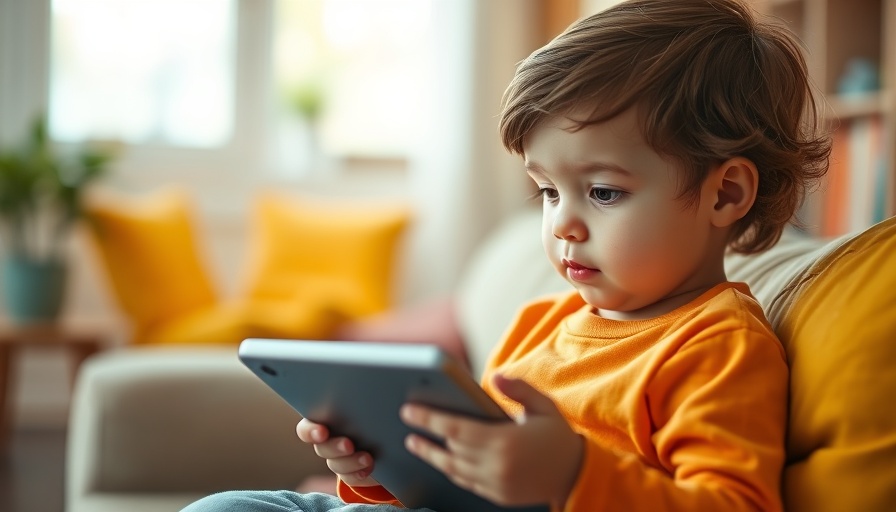
Navigating the Screen Time Paradox in Parenting
In an age where digital screens dominate our lives, finding the right balance of screen time for children is a challenging yet crucial endeavor. As Kelsey Haywood Lucas and Cassie Shortsleeve explore in their piece on the work of Loryn Brantz, a creative director for the beloved kids’ show Ms. Rachel, the narratives surrounding screen time can often feel daunting. With the risks of social disconnect and sleep disturbances looming large, it’s vital for parents to comprehend the nuances involved in kids’ engagements with media.
The Debate: Screen Time as a Resource or a Risk?
The conflicting views on screen time bring to light a broader societal question: what constitutes a healthy media diet for children? Critics argue that excessive screen time hampers social skills and contributes to behavioral issues, while supporters counter that it can be a valuable educational tool. As highlighted by Brantz, each child is unique, with differing needs that dictate how screen time affects their development. For instance, kids with disabilities may find comfort and learning opportunities through digital platforms, challenging the one-size-fits-all approach to screen time narratives.
Finding Your Family's Balance
Brantz emphasizes that the focus should be on what works best for individual families. As she states, “I would never say, 'This or that is the ‘right’ thing to do,' because it never accounts for kids with disabilities who may rely more on screen time than others for various reasons.” This perspective encourages parents to tailor screen time to their children's specific needs, acknowledging that flexibility is key in navigating these modern challenges.
Practical Tips for Parents: Build Your Family's Media Plan
Creating a custom media plan can be beneficial for families looking to optimize their children's screen time. This can include setting specific hours for screen use, choosing high-quality educational content, and engaging children in discussions about what they watch. Parents can foster a more impactful media experience by selectively guiding their children’s digital interactions.
Emotional and Human Interest Angle: What Screen Time Means to Kids
For many children, screen time is not just a break or a chance to relax; it can be a bridge to social interaction and creative exploration. This dual role of entertainment and learning reinforces the importance of a thoughtful approach to media consumption. Understanding the emotional and developmental implications of screen time can guide parents in making informed choices that align with their family values.
Conclusion: Understanding the Bigger Picture
In a fast-evolving digital landscape, staying informed about how screenings affect children has never been more critical for parents. Balancing positive, supervised screen time with physical play and family interactions can create a rich developmental environment. By finding the balance that works best for them and their children, parents can help carve a path through the complexities of screen engagement.
 Add Row
Add Row  Add
Add 

 Add Row
Add Row  Add Element
Add Element 




Write A Comment